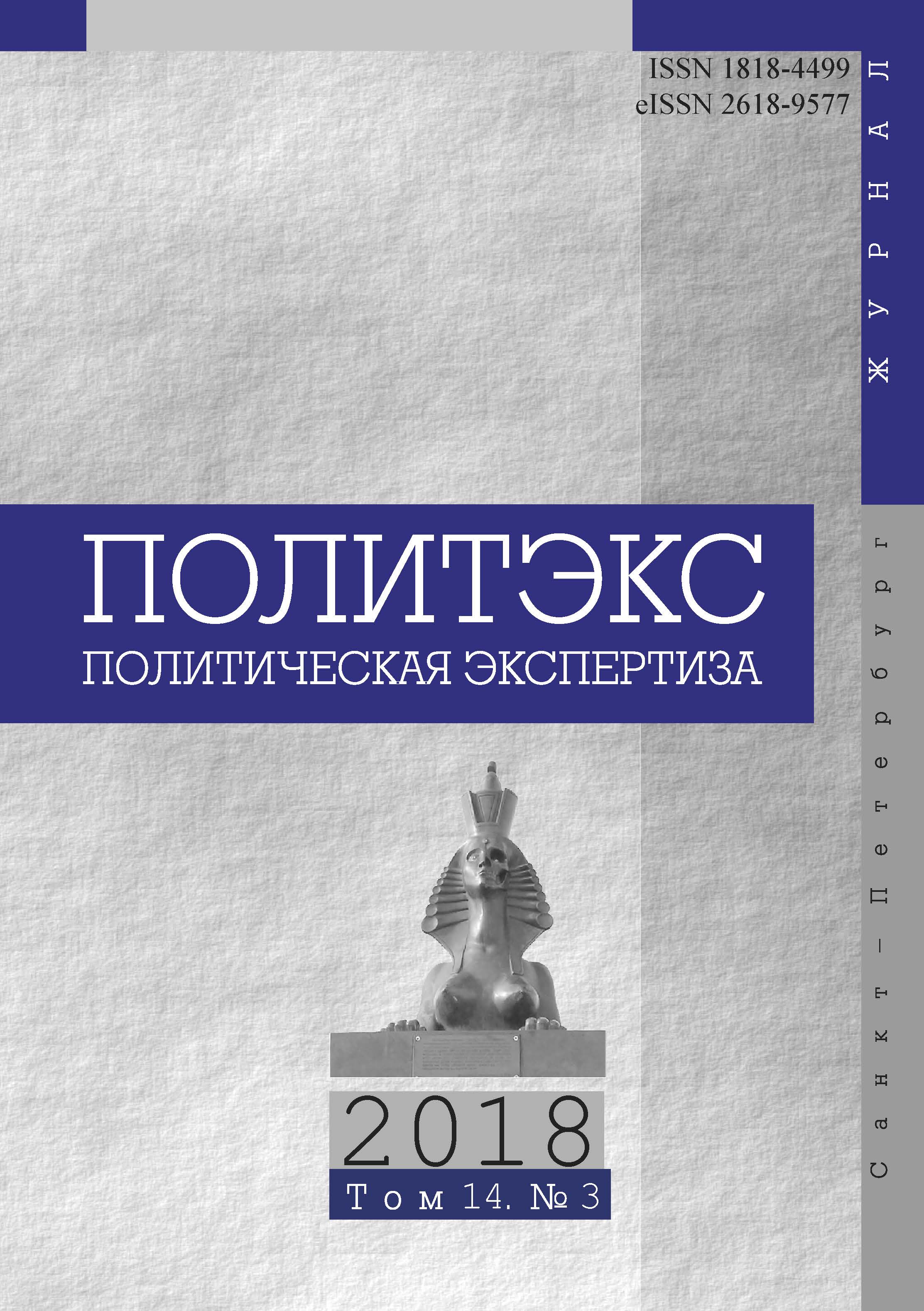POLISH NEW AUTHORITARIANISM IN A COMPARATIVE PERSPECTIVE
DOI:
https://doi.org/10.21638/spbu23.2018.306Аннотация
Poland’s political development since the presidential and parliamentary elections of 2015 lead to the debate over the future of democracy in the country which in 1989 was the pioneer of democratic transformations in the then socialist states. Contrary to Huntington’s “third reverse wave” hypothesis, Poland has not become a military dictatorship and for a long time her democratic system was considered a success story. Neo-authoritarian regimes have been established in the 21st century in several states which recently departed from dictatorships. They differ from classical authoritarianism (as defined by Juan Linz) since the ruling parties come to power in the freely contested elections, confirm their mandate to rule in several consecutive votes and rule with the minimal use of coercion. Nonetheless they are authoritarian since they tend to subordinate all organs of the state, including the judiciary and the civil service, as well as state-owned media to the will of the ruling elite and try to limit the role of the structures of civil society. Poland has been recently subject to international criticism for having moved in this direction but the process has not been yet completed. It therefore offers interesting perspectives for comparative analysis.
Ключевые слова:
Authoritarianism, democracy, elections, elites, leadership, parties, rule of law, third reverse wave
Скачивания
Библиографические ссылки
Anyang’ Nyong’o P. When Elections Fail Twice or More, Can “Losers” Accept the “Victors” as Legitimate? Participation. 2016, vol.40, no.1, pp.18–20.
Bauman Z. Some of the Foremost Challenges to the Status Quo. Studia. Socjologiczno-Polity-czne. Seria Nowa. 2017, no.2 (07), pp.31–46.
Bresser Pereira C.L., Maravall J.M., Przeworski A. Economic Reforms in New Democracies: A Social-Democratic Approach. Cambridge, Cambridge University Press, 1993.
Democracy and the Rule of Law. Eds J. M. Maravall, A. Przeworski. Cambridge, Cambridge University Press, 2003.
Friedrich C. J., Brzezinski Z. K. Totalitarian Dictatorship and Autocracy. Cambridge, Mass., Harvard University Press, 1956.
Huntington S.P. The Third Wave: Democratization in the Late Twentieth Century. London, Nor- man, University of Oklahoma Press, 1991.
Jahn E., Wildenmann R. Stability in East Central Europe? / Stabilitat in Ostmitteleuropa? Baden- Baden, Nomos Verlagsgesellschaft, 1995.
Kubiak H. Democracy and the Individual Will. Democracy: Its Principles and Achievements. Ge- neva, The Inter-Parliamentary Union, 1998, pp.57–66.
Linz J.J. An Authoritarian regime: Spain. Cleavages, Ideologies and Party Systems: Contribu- tions to Comparative Political Sociology. Eds E.Allardt, Y.Littunen. Helsinki, The Academic Book- store, 1964, pp.291–341.
Linz J. J. Totalitarian and Authoritarian Regimes. Boulder, Lynne Rienner Publishers, 2000.
Morlino L. Authoritarianism. Contemporary Political Systems: Classifications and Typologies. Eds A. Bebler, J. Seroka. London, Boulder, Lynne Rienner Publishers, 1990, pp. 91–110.
New Trends in Russian Political Mentality. Ed. by E. Shestopal. Lanham, Lexington Books, 2016.
O’Donnell G. Delegative Democracy? East-West System Transformation, University of Chicago, 1991, working paper no.21.
Przeworski A. Democracy and the Market: Political and Economic Reforms in Eastern Europe and Latin America. Cambridge, Cambridge University Press, 1991.
Russia and the World: Understanding International Relations. Ed. by N.Tsvetkova. Lanham, Lexington Books, 2017.
Shlapentoskh V. Russian Civil Society: Elite Versus Mass Attitudes in the Democratization of Russia. Democratizations: Comparisons, Confrontations, and Contrasts. Ed. by J.V.Ciprut. Cam- bridge Mass., London, The MIT Press, 2008, pp. 165–196.
Shoup P. Comparing Communist Nations: Prospects for an Empirical Approach. The Behavioral Revolution and Communist Studies. Ed. by R.Kanet. New York, The Free Press, 1971, pp.15–47.
Sustainable Democracy. Ed. by A. Przeworski. Cambridge, Cambridge University Press, 1995.
Turan I. The Rise of Populist Electoral Authoritarianism in Turkey: a Case of Culturally Rooted Recidivism. Studia Socjologiczno-Polityczne. Seria Nowa, 2017, no.2 (07), pp.83–102.
Von Beyme K. From Post-Democracy to Neo-Democracy. Cham, Springer International Pub- lishing AG, 2018.
Wiatr J.J. Democracy versus a New Authoritarianism in Eastern Europe. Eds R.Kilminster, I.Varcoe. Culture, Modernity and Revolution: Essays in Honour of Zygmunt Bauman. London, New York, Routledge, 1996, pp.201–214.
Wiatr J.J. Democratizations in Central Europe: Comparative Perspectives. Ed. by J.V.Ciprut. Democratizations: Comparisons, Confrontations, and Contrasts, Cambridge Mass., London, The MIT Press, 2008, pp.145–164.
Wiatr J.J. New and Old Authoritarianism in a Comparative Perspective. Studia Socjologiczxno- Polityczne. Seria Nowa, 2017, no.2 (07), pp.123–138.
Zakaria F. The Future of Freedom: Illiberal Democracy at Home and Abroad. New York, W. W. Nor- ton, 2007.
Загрузки
Опубликован
Как цитировать
Выпуск
Раздел
Лицензия
Статьи журнала «Политическая экспертиза: ПОЛИТЭКС» находятся в открытом доступе и распространяются в соответствии с условиями Лицензионного Договора с Санкт-Петербургским государственным университетом, который бесплатно предоставляет авторам неограниченное распространение и самостоятельное архивирование.




